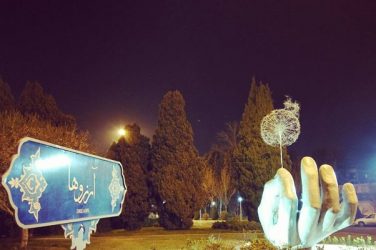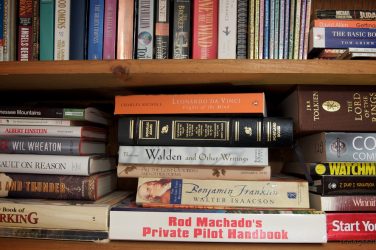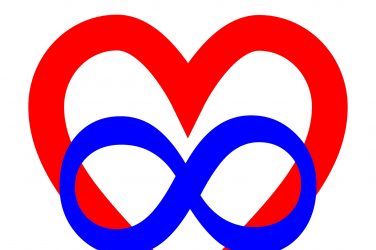What is happening to us? Has life, as we know it, changed? Definitely. What can we take from 2020, from the year defined by Covid-19, worldwide protests and governments taking us for fools? A lot. E&M author Chris Ruff (and former editor – yay 50th issue!) offers the reader a think piece that hits a little too close to home. Though he touches upon not only the losses we have all faced, but also the gains. In the end, we all need a little hope.
Over the past few months we have been tested in the biblical sense. A literal plague has come over us. Naturally, when (if?) we emerge from the other side, there will be a rush to assess what on earth we just lived through, and what it means. To learn, to moralise, to get some closure. But arbitrary suffering does not lend itself to easy analysis. Beyond critiquing your government’s handling of the crisis, beyond the finer points of lockdowns and mask-wearing, what will be the lessons we draw from the age of COVID?
Towards the start of the pandemic, I remember seeing that Albert Camus’ 1947 novel, The Plague, had risen again to the top of bestseller lists across Europe. Clearly not feeling depressed enough after weeks shut off from friends and family, Europeans were reaching for a text that could give expression to their unprecedented predicament. They were hoping, perhaps, that the story of an outbreak of the bubonic plague in pre-war colonial North Africa could put this mystery respiratory illness into some sort of perspective.
The descriptions of empty train stations are particularly compelling. Trains and – for our generation – planes, bring with them change and variety
Taking stock: 1947 vs. 2020
The tale, set in the French Algerian port city of Oran, eerily foretells many of the issues we face today. There too, the government is slow to act in the face of a mounting and unprecedented threat, there are masks, mandatory quarantines, and unheeded expert advice.
Once the plague descends, the town quickly begins to look like the desert that surrounds it. The descriptions of empty train stations are particularly compelling. Trains and – for our generation – planes, bring with them change and variety, something to look forward to in the form of a relative visiting or returning home, or the promise of new horizons. All that has stopped.
Transport, with its fixed timetables, also contributes to the rhythm of our daily lives. There’s something comforting about their predictability. Without them, and without the other regular features of our day like work and school, we are cut adrift. A character in the book describes the feeling as one of exile. Being exiled in your own neighbourhood. We know exactly how that feels.
Reading through 2020 eyes, the book’s lack of Arab characters is jarring. The city’s inhabitants are nameless victims. All the characters white Europeans.
The accuracy of the book’s descriptions of an epidemic-struck city shouldn’t be surprising. The author spent months researching for the novel by looking through old records of epidemics – from the European black death to Chinese plagues from the 18th and 19th century.
Reading through 2020 eyes, the book’s lack of Arab characters is jarring. The city’s inhabitants are nameless victims. All the characters white Europeans. Yet even this oversight has echoes of the current situation, where ethnic minorities are more likely to die from Coronavirus than others, yet their voices are largely excluded from the debate.
The book is often seen as a metaphor for French resistance against fascism. There are striking images of corpses being loaded onto trains to be cremated en masse, and a ‘collaborator’, Cottard, who manages to get rich selling smuggled cigarettes whilst others face hardship. Written just after the second world war, the timing fits.
The powerlessness
The book nevertheless reveals a deeper meaning. As the philosopher Alain de Botton explains, Camus is commenting on the very condition of human life itself: according to his philosophy, the one certainty throughout our existence is that we will die, and disease serves as a reminder of that fact. Plagues, or pandemics, are a reminder of the fragility of human existence. As we have seen, COVID too can strike anyone, and more developed societies are not immune. Perhaps they are less so.
“It is impossible that it should be the plague. Everyone knows that has vanished from the West.”
Early on, a character declares confidently: “It is impossible that it should be the plague. Everyone knows that has vanished from the West.” The reappearance of such an ancient and seemingly vanquished foe is an important corrective to modern society’s belief in progress – that we have civilised death and conquered nature with technology.
Camus also saves scorn for those who believe in some divine plan, or fate. The ridiculous Priest Panelloux, leader of the catholic church in Oran, lectures his congregation that the plague is a punishment from God. But how can that be, when the suffering is so random? In one scene, an innocent child dies in extreme pain – proof, if it were needed, that there is no moral or design to this absurdity.
The power: where do we go from here?
During the COVID pandemic, we too are constantly reminded of suffering and death, with rolling news coverage and daily statistics. This is understandably a heavy burden on our consciousness. There is no sense to it at all.
But there is hope to be found in the book. And there are heroes. Ordinary men and women just ‘doing their job’, like Doctor Rieux, the novel’s protagonist who works night and day without adequate support from the central government in Paris. Another personification of this ordinary heroism is Tarrou, a character with a mysterious past who lives in a hotel for unexplained reasons. He nevertheless leads the citizens’ response, organising groups of volunteers to bring food to those quarantining.
Likewise, the heroes of the COVID crisis are the ordinary doctors and nurses we often take for granted, continuing their jobs in crushing circumstances. Or parents juggling work and childcare. We should cherish them. There is also something hopeful and reaffirming in fighting a common enemy together, no matter how lost the cause.
a book about disease, pain and the ultimate futility of life, can ultimately be consoling, even life-affirming
A new normality?
In the book, the plague is eventually vanquished. The people are desperate to get back to normality, to move on from this nightmare. But as Tarrou muses, ‘one can’t forget everything, however great one’s wish to do so; the plague was bound to leave traces, anyhow, in people’s hearts.’
The parallels to the French resistance are clear. From the lowest low, a myth was born which fueled the greatness of the post-war republic. We can only hope that our spectacular endurance during these times can be a source of inspiration for the future.
Read this way, a book about disease, pain and the futility of life, can ultimately be consoling, even life-affirming. We just need to stick together, and keep going.
Cover Photo:by Adlan on Unsplash







